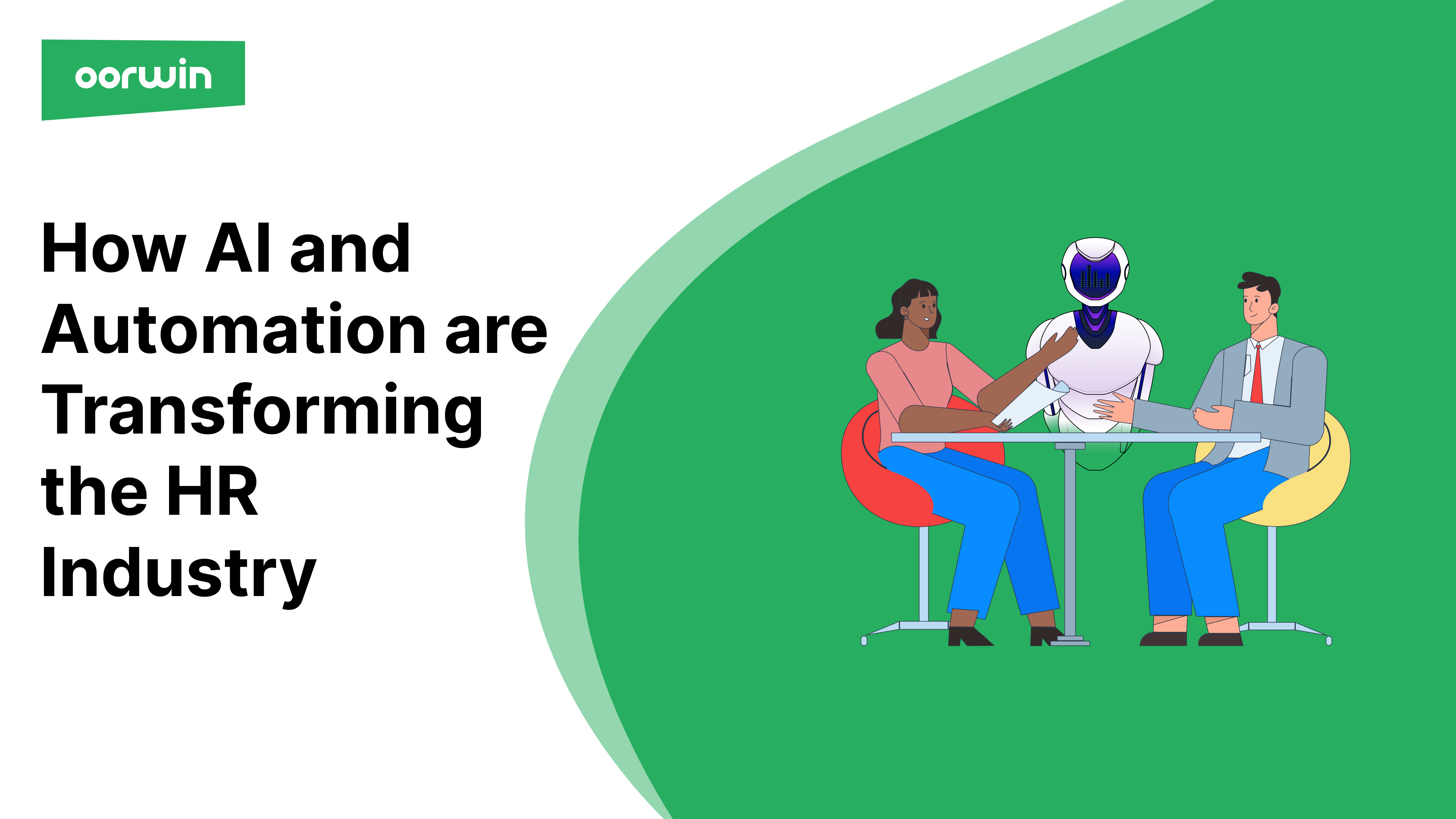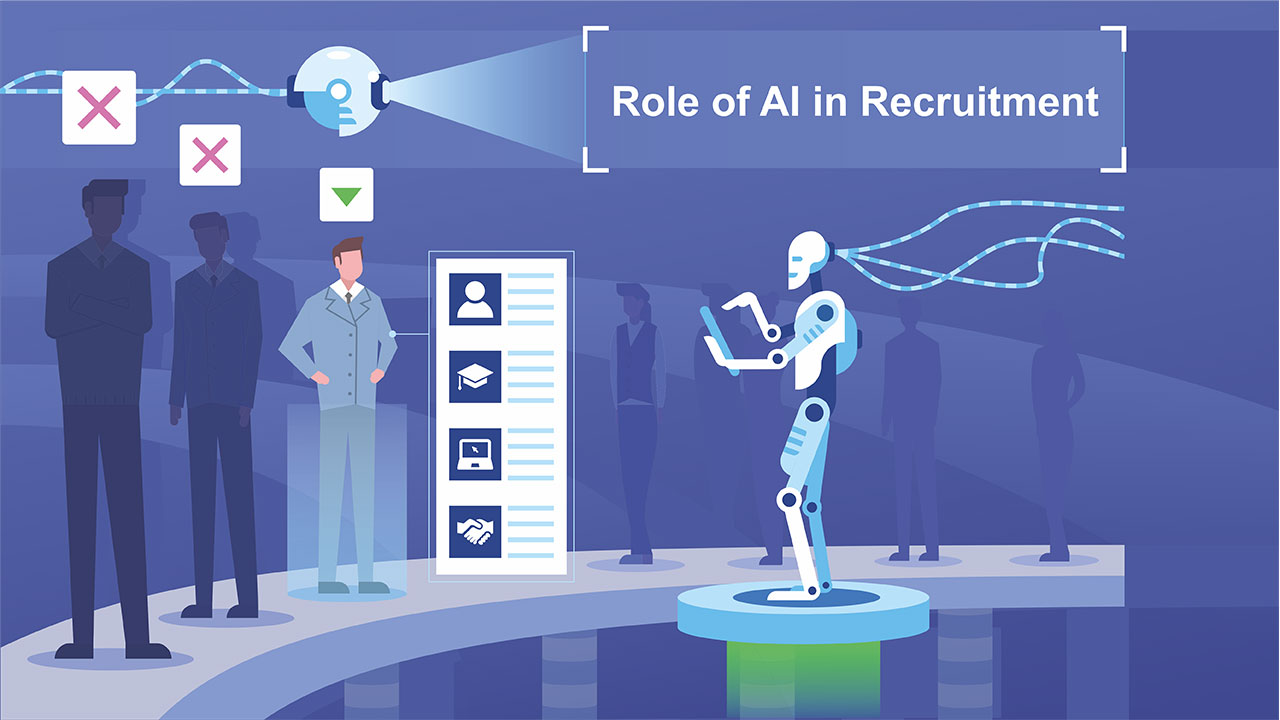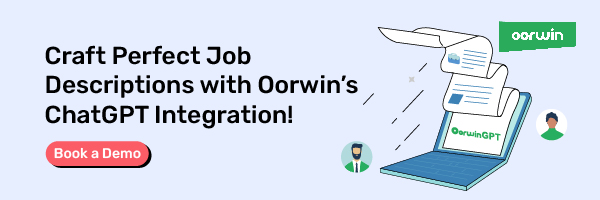According to the report by Harris Interactive and Eightfold.ai, AI adopters cut HR administrative time by 19%.
Oracle’s study also says that most HR professionals are happy about using AI in their work. AI is changing how people work with technology, making it easier for HR to use AI tools in more places. Advanced artificial intelligence (AI)- powered automation, also called intelligent or cognitive automation, is one form CHRO should consider implementing for productivity betterment.
Disrupting conventional perspectives on work, talent, roles, and abilities, AI automation is on the brink of transforming the future of HR with more advanced facilities and features for HR automation.
Key Highlights
- AI talent acquisition strategies shift talent acquisition from a reactive static strategy to an enabling process that helps firms locate, engage, and hire top people.
- AI easily integrates your infrastructure to create a powerful unified talent intelligence platform.
- Artificial intelligence enables your firm to engage and develop talent to its full potential.
- AI automation in HR helps your team stay aligned with strategic initiatives by slashing time on repetitive tasks.
- With AI, in part, employees stay parallel to your organization’s goal with positive work experience.
The Purpose of AI in HR
AI in HR serves two main functions: automation and augmentation.
- Automation: AI takes over repetitive and high-volume HR tasks, such as resume screening, answering employee queries, automating job postings, and personalizing learning content, reducing manual effort and human involvement.
- Augmentation: AI enhances HR professionals’ decision-making capabilities by providing data-driven insights and recommendations. It helps eliminate bias in hiring, forecasts talent needs and assesses organizational climate and engagement drivers.
Given its popularity, 76% of HR leaders believe the firm will fall behind if it does not adopt and apply AI solutions like generative AI in the preceding 12 to 24 months.
AI and Its Automation in the HR Industry
Implementing AI automation in HR enhances productivity, reduces time-consuming workflow, and improves efficiency — true! Let’s see how.
Better Talent Acquisition
AI in recruitment is already making big strides in talent acquisition. AI-powered resume screening and applicant matching algorithms deliver precision and effectiveness in finding the best candidates for a position. AI simplifies initial screening and decreases unconscious biases in decision-making. Automating this process saves HR personnel time, resources, and a more varied and qualified talent pool.
For example, Oorwin AI-enabled talent acquisition allows companies to identify suitable candidates for open positions with a customized career portal that embodies your brand’s ethos and culture. You can customize an interactive dashboard to share your content and insights with Oorwin solutions.

Data Integration on Payroll System
Imagine doing repetitive tasks every time you hire someone. One of the most challenging tasks is extracting data from documents to verify and authenticate their personal information. Entering and updating their data in the payroll system is even more frustrating.
AI can automate HR’s payroll system and update employee data. When data changes, the system data also gets updated seamlessly. For example, when you integrate Quickbooks with Oorwin, Oorwin solutions automatically syncs all timesheet dashboard invoices with Quickbooks without manual interference, allowing you to manage your invoices and payments easily.

AI and Talent Management
AI systems, like performance management, will become more critical in various talent management processes. Many organizations are plagued with subjective evaluations, a lack of real-time feedback, and disconnects between performance and rewards. The crucial HR function has the potential to be transformed by AI.
AI-powered analytics offer objective, data-driven insights into employee performance, facilitating more accurate and equitable evaluations. By examining factors such as productivity metrics, collaboration patterns, and project outcomes, AI can offer a more comprehensive perspective on an individual’s contributions.
Oorwin’s data-driven approach in talent management mitigates biases and establishes performance evaluations based on tangible, quantifiable results rather than subjective impressions.

Increased Productivity and Saving
Artificial intelligence and automation can automate data entry, scheduling, and record-keeping, among other administrative tasks, assisting human resources personnel save time and resources. As a result, human resources departments may have more time for strategic initiatives like performance management, talent development, and stimulating employee engagement.
Oorwin’s AI optimizes recruitment workflows, handles tasks, and streamlines processes to allow you to focus on strategic initiatives.
Along with AI-driven workflow optimization, you can customize workflows to fit the needs of hire-to-retire processes. Customize existing processes to suit your preferences. Incorporate custom fields of your choosing into the process or a form. Limit access levels to establish a secure employee ecosystem.

Improving the Employee Experience
Employee satisfaction is a critical component of any successful organization. AI helps improve employee satisfaction, as it plays a crucial role in the success of an organization for several reasons. It enables higher productivity, measures loyalty, fosters a favorable organizational culture, improves retention, and lowers turnover.
With Oorwin, you can easily create, customize, and send surveys to your staff without needing to purchase any other software. You can examine the data and collaborate to discuss the results- all in one spot to boost employee engagement and increase overall productivity.
Oorwin’s human resources software provides a customized LMS with mobile compatibility to handle all learning needs related to employee training and development.
Wondering what part of the role AI can take in the HR team
AI is shifting the HR industry as it streamlines processes and personalizes the employee experience. A SHRM survey highlights key use cases, with AI usage in recruitment, interviewing, and hiring (64%), learning and development (43%), and performance management (25%). In recruitment, AI helps sift through resumes and handle candidate queries; it improves hiring efficiency. For learning and development, AI customizes and personalizes the training programs to individual employee goals to foster continuous learning. In performance management, AI supports managers in delivering feedback and setting goals, allowing swift analysis of employee engagement surveys, allowing HR teams to address concerns, and improving retention rates.
Wrapping Up
Artificial intelligence will become an increasingly significant component of our daily existence. HR teams that adopt it now will be ahead of the curve, ensuring that their organizations are well-equipped to adapt and grow as the way we work transforms.
Start your AI journey with Oorwin to set up your organization to redefine the HR landscape, ensuring that you attract and retain the finest talent with an intelligent, data-driven approach. More than a change to your operational procedures, it is a significant stride toward future-proofing your organization’s talent management strategy. Oorwin assists organizations in managing their sales, talent acquisition, and talent management.
- Facilitate seamless collaboration and efficiency by integrating HR, Recruitment, and Sales.
- Boost sales by utilizing intuitive tools for managing interactions, monitoring leads, and closing deals.
- Streamline the Talent Acquisition process by integrating employment boards, analytics, and automated workflows.
- Handle the end-to-end employee lifecycle management, from onboarding to performance management, with ease.
- Streamline document administration by incorporating e-signature functionality.
- Leverage actionable AI insights to enhance employee satisfaction, recruitment, and sales.
You can start for free and explore the options to decide if they fit your organization.


